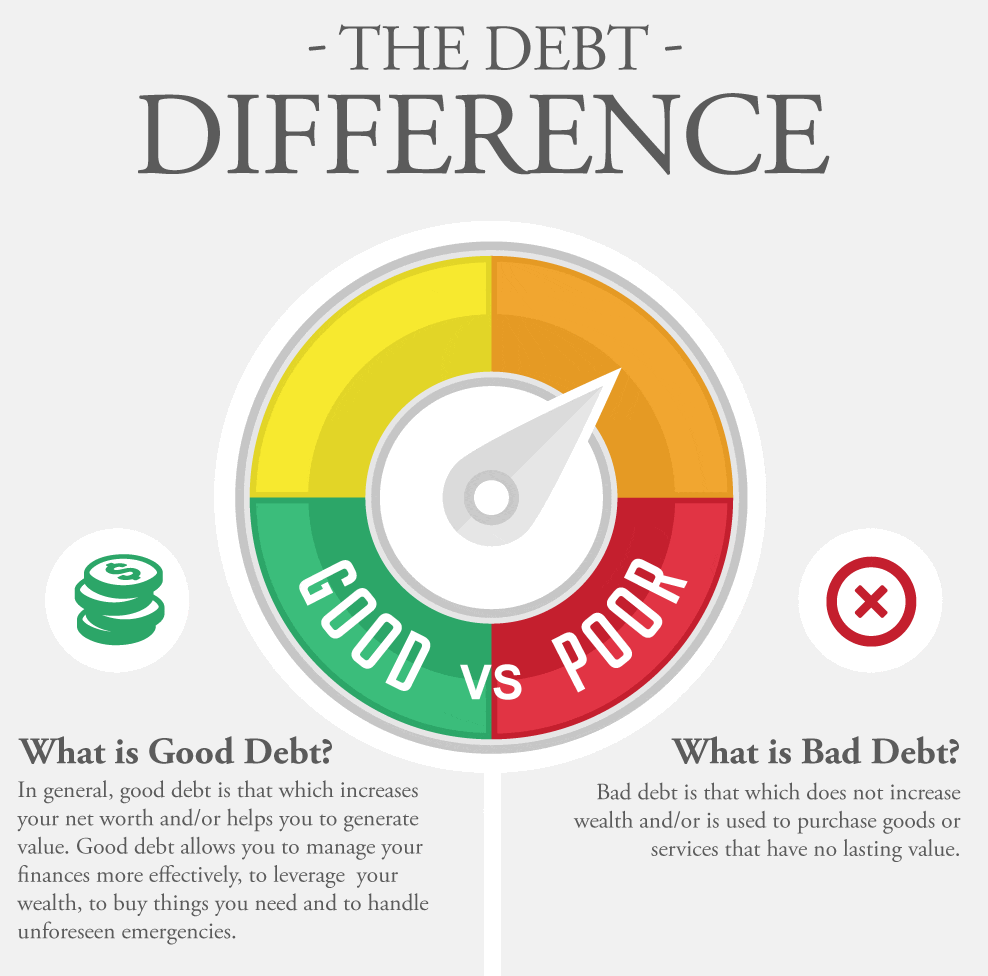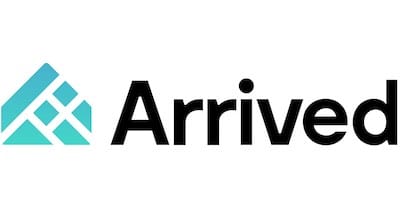Appreciating assets are like fine wine: they get better with age. Just like a rare vintage, if you hold onto appreciating assets for long enough, you could end up making a killing. Of course, not all assets appreciate at the same rate.
When we are talking about appreciating assets, what is the first that comes to mind? That’s correct, building net worth. That is what appreciating assets is all about, those things that increase their value over time and keep adding to your net worth.
So, if you're looking to invest in appreciating assets, it's important to do your research. But generally speaking, appreciating assets is a great way to build wealth over time.
Therefore, it might be worth considering investing in appreciating assets if you want to grow your money. Who knows, with a little bit of luck, you could end up making a fortune.
Appreciating Assets as Your Key to Financial Freedom
When we talk about assets in personal finance, they are something with value or are resources of value that have future benefit – meaning, you can convert them into cash. Therefore, personal assets are things owned by individuals with present and future value. It can include investments like real estate, mutual funds, bonds, and stocks.
There are two different kinds of assets – appreciating and depreciating assets. Both of these assets have their purpose in wealth management, and individuals like you who are interested in growing your wealth should know their difference and how to use each effectively.
Appreciating assets are things that increase their value over time. It’s a no-brainer that investing or owning an appreciating asset is a key driver in scaling your wealth. These assets will most likely appreciate over time due to many factors. It can be due to increasing demand, diminishing supply, and adjustments in interest rates.
Depreciating assets, on the other hand, are the ones that decrease in economic value over time and with use. The most common examples of this type of asset include cars, machinery, sports gear, and equipment like computers and electronics.
Even though depreciating assets tend to lose their value over time, there are reasons why owning them is important. According to experts, these assets can provide tax benefits.
Purchasing Appreciating Assets with Debt: Is It Good or Bad?
In acquiring bigger assets like cars and real estate, you may need debt to buy them. If you are looking to build your wealth, should you use debt to purchase assets? When should you avoid debt?
Robert Kiyosaki introduced the idea of good debt and bad debt. According to him, Good Debt is debts used to buy assets that put money in your pocket, like a rental property. Bad Debt, on the other hand, in Kiyosaki’s definition is debt used to buy depreciating assets or liabilities like a car.

Good Debt
With Kiyosaki’s definition, you use only debt to buy assets that will yield a return. And that return is higher than the interest rate you are paying to borrow the money.
For example, if you can get a loan at an interest rate of 4.25% and purchase a rental property will yield you a return of 8-12%. This is a good use of debt because you will get a return of 8-12% from your money for 4.25%.
Bad Debt
When you acquire a bad debt, the money that you take out of your pocket will never return. Therefore, you should use it only when necessary. In some instances where you use debt to buy a depreciating asset, that asset depreciates faster than paying off the loan. In the end, even if you sell the asset, the money will not be enough to pay off the loan.
For example, you took a 5-year loan of $25,000 to get a car. By the third year, you decided you no longer need this car and sell it off to pay your remaining $17,000 balance on the loan. However, the car’s worth by now is only $14,500. Doing a little math, you will have to decide whether you pay the remaining $2,500 on loan even without the car or keep the car.
The most common example of bad debt is credit card debt. But compared to car or real estate loans, credit cards have a higher interest rate ranging between 8-20% or more.
A simple analogy is buying an iPhone for a thousand bucks using your credit card with a 12% interest rate. If you make a minimum payment of $25 a month, it will take you more than four years to pay off the phone. The total interest rate of your phone would be $283.47, which brings the total cost of this phone to $1,283.47.
How Do Appreciating Assets Work
Appreciating assets are material or not, but something that has a value and price. Appreciating assets can go up or down in price, which happens to depend on the supply and demand of that asset. Appreciating assets can go up in value gradually.
You have to be aware, however, that assets can go down in value over time as well. These depreciating assets are declining in value over time and are generally purchased for entertainment purposes instead of financial strategy. Appreciating assets is a great way to ensure financial stability in the future.
Building Your Wealth: How to Get Started
Appreciating assets go up in value over time. They contrast with depreciating assets, which lose value as they age. Many people choose to invest in appreciating assets because they can generate a return without the investor having to put any additional money in.
The most common way to start investing in income-producing assets is to rely on income from a primary job or money from existing savings. Investors can choose to redirect those funds towards an investment that will generate passive income over time.
Aspiring investors should take time to do some financial planning and determine the level of funds they will be working with and how to best devote them to potential income-generating assets.
Appreciating assets can include everything from stocks and bonds to real estate and collectibles. Each asset class has its own set of risks and rewards, so it's important to do your research before making any decisions. Over time, diverting some of your savings into appreciating assets can help you build wealth and achieve financial independence.
One of the most significant things to keep in mind when investing in income-generating assets is having a diverse portfolio. The savviest investor does not put all eggs in one basket. They often have several investments in different platforms.
A diverse portfolio can serve many purposes but the most important of all is it offers a degree of protection if one of the investments is not profitable. By diversifying your investments you can also manage your income and help you get revenue from different sources.
- Invest 40% to 50% of your portfolio
- Invest 15% to 20% of your portfolio
- Invest 10% to 15% of your portfolio
8 Appreciating Assets to Build Your Wealth
There's no one-size-fits-all answer when it comes to choosing the best income-generating asset for your portfolio. It all depends on your individual goals, risk tolerance, and personal preferences.
However, as you review our income-generating assets list, there are a few key factors to keep in mind.
First, consider the cost of entry. Some assets, like real estate or private equity, can be expensive to get into, while others, like savings accounts or certificates of deposit, are relatively low-cost.
Second, think about potential returns. Higher-risk assets usually offer higher potential returns, but they also come with more risks.
Finally, consider your level of involvement. Some assets, like stocks or mutual funds, require more active management, while others, like real estate or private equity, are more passive.
Ultimately, the best income-generating asset for your portfolio is the one that aligns with your unique goals and circumstances.
Finding the right combination of assets to achieve your financial goals is entirely up to you. However, by doing your research you will be prepared to make smart decisions.
Let us discuss some of the most common appreciating assets.
Stocks
Stocks are investments in business equity and allow investors to gain income through different means. One of them is dividends. These dividends are rewarded over time and honestly, do not need much capital.
You must know the difference between investing in mutual funds and investing in individual stocks. The latter represents an opportunity to purchase single shares in a company to try the industry. The former, on the other hand, involves investing in varied stocks across different industries. Since mutual funds are more diverse than individual stocks, they are not as risky as investing in individual stocks.
But the clincher is that individual stocks can potentially have higher yields. If you are interested in investing in individual stocks, you need to familiarize yourself with the stock market and have a better idea of what you are investing in.
How to Research Stocks
Analyzing stocks is what an investor should do by using stock news apps and investment research sites, and individual due diligence. But this is not plain research. It is using analytical methods to find stocks trading at a discount to their true value. With enough research, you are in a better position to capture the returns in the future.
In conducting research, you need to know that there are two types of stock analysis: technical analysis and fundamental analysis.
Fundamental analysis is based on the assumption that a stock price does not necessarily reflect its intrinsic value. This is the tool that value investors use to find the best investment opportunities. Most fundamental analysts use valuation metrics and other information to determine whether a stock is priced correctly. This type of analysis is for long-term investment opportunities.
Technical analysis, on the other hand, assumes that the price of stocks reflects all the available information and that the prices are moving according to trends. This means that by analyzing the history of stock prices you can predict the behavior of its future price. The good thing about technical analysis is it focuses on short-term price fluctuations.
One of the best stock research websites to use is The Motley Fool. It offers premium investment guidance to millions of individual investors around the world. The Motley Fool has the correct way to analyze stocks and the goal of stock analysis is to find companies that investors believe in. It helps them find stocks that deliver strong returns and prevent you from making bad investments and losing money.
Motley Fool is best for investors who are ready to begin purchasing immediately. It is also good for those who want to beat the S&P 500.

Pros
- Proven track record of high returns
- Plenty for long-term and retirement investors
- Higher returns on Stock Advisor and Rule Breakers
Cons
- Higher-tier platforms and plans can be expensive
- Averaged Stock Pick Return over 318% (vs 114% for the S&P)
- 2 New Stock Picks Every Month
- 700,000+ Loyal Members
- Smarts' Reader Deal: Special $79 Stock Advisor Introductory Offer
How to Buy Stocks
Whether you are looking to contribute a large chunk of your investment or simply dip your toes in the investment waters, you should know how to buy stocks and develop a strong portfolio.
Stocks are bought and sold on stock exchanges and one cannot buy directly from them. What you need to do is to open a taxable brokerage account. This type of account works like bank accounts, except they are used to buy and sell securities.
To buy stocks, you need to choose a platform (provider) and open an account online, transfer money into your account, and you are ready to buy stocks in a few clicks.
We recommend using the best free stock trading platform, Webull. It is a platform for investors who want to get into the financial market with no minimum account requirements and in commission-free trading. Although it caters to relatively young investors, the broker’s no-cost model appeals to active traders.

Pros
- No commissions on ETFs, stocks, cryptocurrencies, and options
- Easy to set up and there are no fees or minimums
- With real-time streaming quotes
- Easy-to-use platforms with excellent tools and content
- Access to pre-market trading and extended hours
- Get 6 free stocks when you open and fund a new account
Cons
- No added income on excess cash
- Limited tools for portfolio management
- No access to fixed income, mutual funds, futures market, and foreign exchange
Webull offers a promotion where you can get up to 12 free stocks worth between $3 and $3,000 each. To qualify, you need to make an initial deposit of any amount. The free stocks are randomly chosen from Webull's inventory of settled shares. They are from companies listed on NYSE or NASDAQ with a minimum market cap of $2.5 billion.
Real Estate
If you're looking for a way to generate consistent revenue, investing in rental properties is a popular option. This consists of purchasing a home or multi-unit property and marketing it to tenants as a source of rental income.
While this may sound like a lot of work, you can hire a property manager to take care of the day-to-day operations. This frees up your time so you can focus on other things—like making more money. In addition to the potential for steady rental income, rental properties offer the advantage of appreciation.
Over time, your property will likely increase in value, providing you with even more revenue when you eventually sell. For these reasons, investing in rental properties is a smart strategy for those looking to generate long-term wealth.
Here are our recommended real estate apps and tools to use in real estate investment.
DiversyFund
Investors can have a minimum investment of $500 to start in DiversyFund. That’s right, this platform is your entry to the high-roller world of investing in real estate. Nevertheless, investors must proceed with caution. They should take a long-term view as all distributions are reinvested into properties until they are sold.
Pros
- Members have access to commercial real estate deals
- It accepts non-accredited investors
- Requires only $500 minimum to begin investing
Cons
- Highly illiquid investments
- You cannot choose among commercial projects
- Limited choices for investment
Real Estate Invest Trusts (REITs)
Who says you need to buy an entire building to invest in real estate? If you're looking for a more passive form of investment, you can always go for a real estate investment trust (REIT). REITs are companies that own and operate income-producing real estate investments, and they typically trade like regular stocks.
So if you find a promising REIT, you can simply invest in your chosen number of shares. And unlike with actual buildings, you don't have to wait forever to see a return on your investment. You're likely to receive dividends from your REIT shares, and you can sell them at any time.
Of course, if you wait longer, the value of your shares is likely to go up, meaning higher profits for you. Publicly-traded REITs are listed on major stock exchanges, so it's easy to purchase shares through any stockbroker.
Streitwise
This is a popular real estate investment company that combines innovative technology and federal regulations. It requires a minimum low investment of $1,000 and has low fees. Streitwise is revolutionizing the market and making real estate investing accessible to anyone.
It is a REIT, meaning a liquid type of investment with many benefits compared to its competition. Therefore, it is a real estate investment trust that has income-producing properties and distributes the earnings to its investors via dividends.
Pros
- Very low minimum investment
- Consistent yield
- Low and transparent fees
- Dividend reinvestment option
- Secured platform
- High liquidity
Cons
- Limited diversification
- No mobile app
- Short investment history
Rare Art
If you are into collecting arts, then another way to invest is to have a fine art collection. Just a word of caution though, investing in fine art can be risky. You should make sure that what you are acquiring is properly authenticated and certified. It is far riskier for investors who are not familiar with the niche.
Fine art increases its value, specifically for pieces that are made by well-known artists. The most in-demand paintings are from artists who have long passed and cannot launch a new collection.
Some platforms offer partial ownership of famous paintings for those who cannot afford to buy the whole thing. You can invest in a fractional share of a Claude Monet painting, provided that you go through the proper channels.
These platforms would also have experts in art collection and will advise you on the artworks to buy, based on their predictions of resale value. One thing you need to know though: artworks are harder to sell than other things that appreciate.
We recommend Masterworks as the new platform that gives everyday investors the chance to invest in fine art. Currently, it has up to $30 million worth of investment in shares of fine art.
Masterworks
This is a fine art investing platform that combines the elements of investing in blue-chip art worth up to $30 million with a flavor of fractional investing. What is typically available to the world of high roller, glitz, and glamor is now open to anyone who wants to partake in high-end art investing.
Pros
- You can invest in fine art in $20 increments
- The platform pre-vets the artists and the artwork
- All the artwork is insured and secured in facilities
- It also offers a secondary market to buy/sell your art shares
- You don’t need money to open your account
Cons
- Fees are relatively high
- Your money locked up for long periods
- The art world is unregulated
- The fees can be confusing for new investors
- Invest in multimillion-dollar paintings
- Attractive historical price appreciation
- Buy and sell shares on the secondary market
Fine Wine
Ah, wine. The nectar of the gods, the drink of kings, the object of obsession for many a connoisseur. It's no wonder that wine has been revered throughout history; after all, it is quite simply delicious. But wine is more than just a tasty beverage; it is also a valuable investment.
Due to the limited supply of certain types of wine and the increasing demand from collectors and investors, rare wine can fetch a high price. And unlike other investments, such as stocks or bonds, wine only becomes more valuable with age. So if you're looking to invest in something that will give you both pleasure and profit, then look no further than a nice bottle of rare wine.
Wines that appreciate are those that are rare in nature. We recommend Vint, a platform that makes it incredibly easy to invest in wine.
Vint
Vint is a unique wine-investing platform because it charges a one-time fixed fee. Every other platform is charging monthly or yearly management fees and other fees. Vint only charges a straightforward sourcing fee, a one-time upfront fee for each wine, and nothing more.
Pros
- The platform is highly regulated
- Plenty of wine collections to invest in
- With IRA support for its US clients
- Does not collect active management fees
- With investment report for each offering
- Historic good returns
- Allows anybody into the platform
Cons
- Does not have a secondary market
- No option for a fully managed portfolio
- Not every efficient tax structure for all investors
- You cannot choose when to sell
- Invest in fine wine for under $100
- Open to all investors
- Low minimum investment
- Low market correlation
- New collections released bi-weekly
Land
Farmlands by far are the best income-generating assets for plenty of reasons. Unlike other investment options, it does not have the same level of volatility. It has a low correlation with the stock market because it provides the necessary resource – food. As such the demand for farmland is consistent.
There are two approaches to benefit from this asset: buy the land directly and lease it to a farming company or invest in a REIT or a crowdsourcing platform that focuses on farmland.
FarmTogether
If you are interested in investing in lands – particularly farmlands, we recommend the FarmTogether platform. It is best for investors who want to invest in farmland and real estate and those who don’t mind investing in illiquid assets. You need to have a net worth of $1 million to invest though.
Pros
- You can invest directly in the agricultural land
- You can combine your investment with other investors for larger returns
- The platform is easy to use
Cons
- Higher investment requirement
- There is no mobile app or educational offerings
- Can invest directly in agricultural real estate
- Can combine your investments with other investors for larger returns
- Offers an easy-to-use platform that’s simple enough for total beginners
Cryptocurrency
This type of investment is a digital or virtual currency. It is secured by cryptography which is a protection against counterfeit and double-spending. Many cryptocurrencies are decentralized based on blockchain technology – which is a different network of computers. One of the most defining features of cryptocurrencies is it is not issued by a central authority. That means, it is immune to government intervention.
Many experts believe that blockchain and its related technology will disrupt many industries, including law and finance. The advantage of cryptocurrencies is that it’s cheaper and facilitates faster money transfer. On the other hand, it is also equally dangerous. Aside from being risky, there is high energy consumption for mining, and most often, they are connected to criminal activities.
eToro
eToro is a leading social trading network that allows traders to copy the way experienced investors do it, or they receive exclusive perks when they share their strategies.
Pros
- It is an established platform and crypto app
- The platform is regulated in many jurisdictions
- It has unique social trading capabilities that allow users to match the action of popular traders
Cons
- Margin trading is not available to US traders
- Stock, ETF, and cryptocurrency trading are available only in 44 states
Gold, Platinum, and Gemstones
Precious metals and gemstones are also great investment options since they are rare and depletable. As such, they appreciate steadily over time.
Here are some of the options:
- Gold: It is historically a great asset to invest in and holds great value since it is used in jewelry. This is why gold is resilient against financial downturns and recessions. Aside from gold jewelry, you can also invest in gold coins, bars, and exchange-traded funds.
- Platinum: The truth is platinum is more precious than gold. Platinum jewelry has a very high concentration and has a high resale value.
- Gemstones: They are also a good investment because not only do they retain value, but also increase over time.
Related: Is Silver a Good Investment?
Alternative Investments
Yieldstreet is an online platform that offers investors access to alternative investments. This gamut of investments includes commercial real estate, various projects, and even art. Investors are allowed to participate in crowdfunding for these investments. However, most of these offerings are open only to accredited investors.
Pros
- Investors have access to commercial, real estate, legal, marine, and art investments
- Investors can enter into a privately structured credit deals
- Investments are backed by assets
Cons
- Their portfolio is consist of highly illiquid investments
- Most of the investments are open only to accredited investors
- There are limited offerings available
- Diversify your portfolio and earn passive income with investments starting at $10,000
- Access to alternative investments in commercial real estate, marine projects and even art
- Most offerings are open only to accredited investors
Related Questions to Assets that Appreciate in Value
We often confuse an investment with an expense. A house for one is a living expense. We have to pay a certain amount of money to have a place to live. Just like the car, the house is a depreciating asset. It will age and fall apart over time unless you set aside money for its upkeep and maintenance. And this money is expenses along with the cost of insurance and taxes on the value of that home.
It is a depreciating asset as you lose equity in the car as time goes by, like your house. Cars will not be worth more in a year or two – instead, they are worth less than the money you bought them for.
The age of a house can enhance its value, especially if it is located in a historical district or has landmark status. However, age can lessen its value if there are signs of neglect and wear and tear. To retain its value, the house needs to be upgraded, particularly in the kitchens and baths.
While a bank loan can add cash to your bank account it still falls under liability since it is an obligation you have to repay eventually.
Wealthy people invest in the following assets to preserve their wealth. That includes:
Exclusive real estate – these are real estate that does not hit the market often.
Fine art – they know that fine art has a lot of value. Some who have intensive collections use it for passive income as they can open their galleries or lease their art to some famous galleries.
Rare coins – are used as wealth preservation tools.
Usable precious metals – gold will never go out of fashion as well as other metals like platinum and titanium.
Buy Appreciating Assets That Will Grow in Time
Appreciating assets are those that increase in value over time. They can be a valuable addition to any investment portfolio, as they offer the potential for both capital gains and income generation.
While there are many different types of appreciating assets, some of the most popular include real estate, art, and collectibles.
For investors seeking to diversify their holdings and potentially generate long-term growth, buying appreciating assets can be a wise move. However, it is important to remember that all investments come with risk, and there is no guarantee that an asset will appreciate.
As such, investors should always conduct thorough research before making any investment decisions.
Arrived lets you invest in residential real estate and vacation rentals with only $100. It's an excellent option for anyone looking to earn passive income with rental units. And the platform is available to non-accredited investors.











